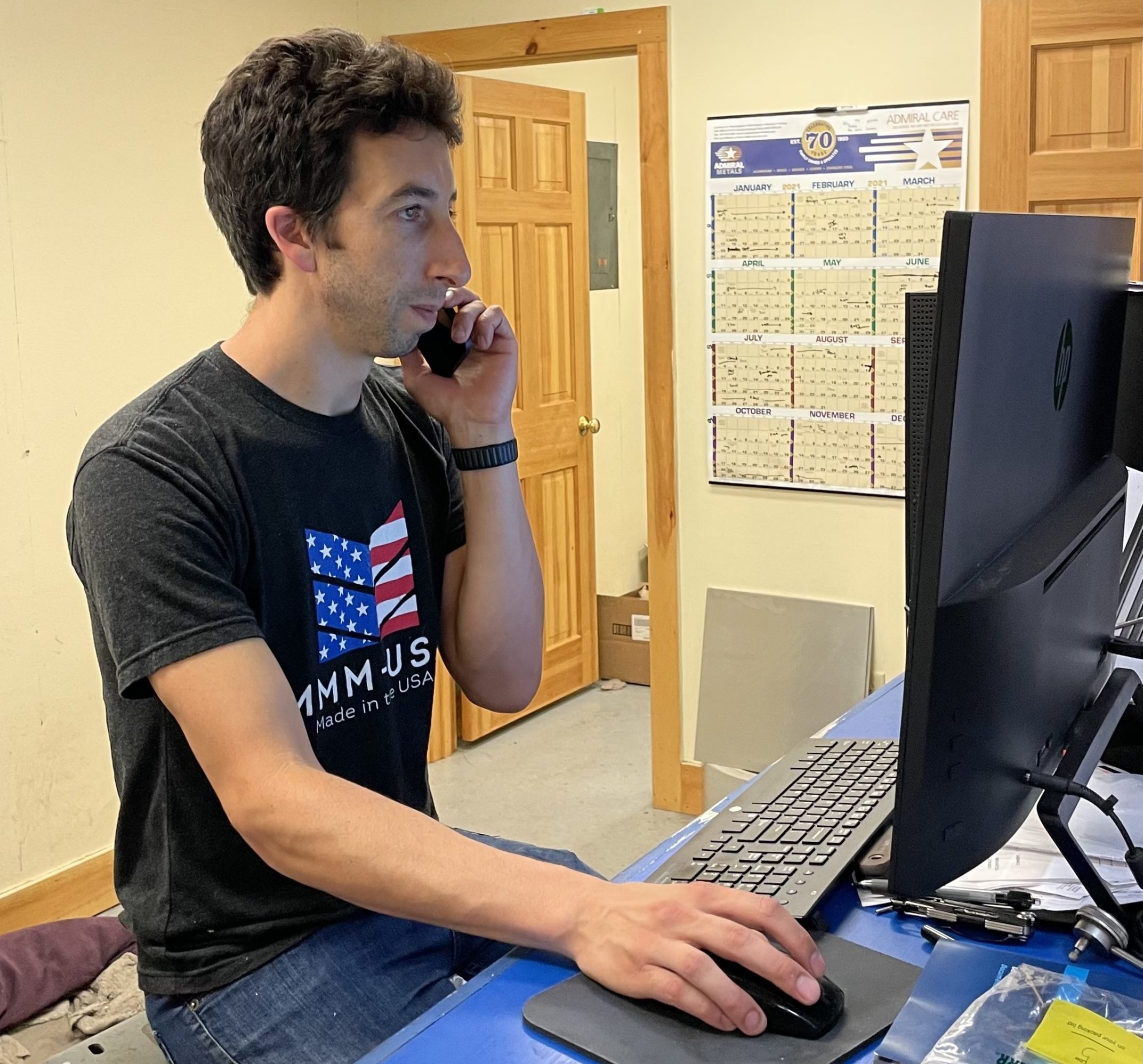7 Questions to Ask When Choosing a CNC Machine Shop for Prototyping
Finding a machine shop is easy enough. But finding the right machine shop for your prototyping needs is much more challenging.
A shop may offer all the capabilities you’re looking for, but that doesn’t mean you can trust them with your parts. Capabilities alone aren’t enough. The fact is that who you’re working with is still more important than what you can do.
So, how do you find a CNC machine shop that will deliver on everything from materials to post-processing to production?
Get someone from the shop on the phone and have a conversation! Ask your shop these questions so you can feel confident trusting them with your parts.
7 Questions to Ask a CNC Machine Shop
1. What materials do you commonly work with?
Most shops can work with every material, but that doesn’t mean they specialize in what you need. Shops have preferences, areas of expertise—and yes, limitations.
Their equipment may not accommodate certain alloys. They may be unfamiliar with exotic materials like wood. They may choose to avoid working with hazardous materials.
Before working with a CNC machine shop, make sure they’re experts at machining the materials you need. If they don’t specialize in your chosen material, you could end up paying more money for a lower-quality part.
2. What’s your standard lead time and current availability?
Rather than asking a shop how quickly they can turn around your specific project, ask them about their standard lead time. The actual turnaround time will vary depending on factors like part complexity and material availability, which may not be apparent right away. But if you know their standard lead time, you can get an idea of how quickly they work.
If you need to place an order imminently, ask about the shop’s current capacity as well. While their standard lead time may be 5 days, their capacity might not allow for any new projects. Having these two pieces of information can help you understand what to expect before you submit your RFQ.
3. Do you have a primary industry focus?
Going to an industry-specific CNC machine shop, like one that specializes in aerospace or automotive parts, can be either useful or limiting depending on what you need. These shops are great if you’re looking for high volumes of ultra-specific parts, but less ideal if you need a variety of different parts.
Industry-specific shops may not have a wide enough range of skills and capabilities to machine the various parts you need outside their area of expertise.
Ask your shop what their primary focus is to see if they have a narrow speciality or if they have cross-industry experience.
4. Where are my parts going to be made?
When you go to a standard CNC machine shop for a mechanical assembly, you may assume that they’ll make all your components at their facility. But if a shop can’t machine some of those parts in-house, they’ll outsource them to other vendors, which can increase lead time, complexity, and risk.
It’s important to know where your parts are going to be made—especially if your company requires notification of outside vendors for something like material traceability.
At KAD, it’s our goal to machine as much as possible in-house. We have two shops—one in Vermont and another in California—so we try to make parts as localized to clients as we can without relying on outsourcing. When we do need to outsource, we like to provide our customers with that transparency and only use trusted vendors.
5. What post-processing services do you offer in-house?
When you ask where your parts will be made, be sure to ask about post-processing, too. Machine shops commonly outsource these services to third-party vendors (although we have a host of in-house post-processing services here at KAD).
Keep in mind that adding another vendor could potentially disrupt the flow of your project. Your original shop will depend on the post-processing supplier to get your parts completed on time, and that variable could affect your timeline.
6. After prototyping, can you support us in production?
Some shops make prototype models specifically for production contracts. That offering can work in your favor if you know you’ll need production quantities down the road.
What constitutes “production” can vary widely in manufacturing. Have a discussion with your machine shop about the kind of scale you need. Defining production scale is an important segue into the big question of whether your shop can support your volume of parts.
KAD specializes in producing prototypes, or the first iteration of your part. Then we can introduce you to long-term manufacturing partners to fulfill your production needs.
7. How are you different from other local machine shops?
Most importantly, find out what matters to the shop you’re interested in and how they’ll prioritize your project. The answers to those questions will help you figure out if you’re entering a successful partnership.
At KAD, we truly enjoy prototyping for cnc machining and the complex, rapid iteration that comes with it. We also prioritize communication. We believe that our clients should know the progress of their parts, so we make sure they have a direct point of contact who’s always available for them.
Get a machine shop on the phone and ask some basic questions to set yourself up for success. (And if you can’t find a person to call you back or you get told to “just check the website,” they’ve probably given you all the information you need.)
Don’t work with any shop—work with the right shop. Contact KAD today to get a conversation rolling.



